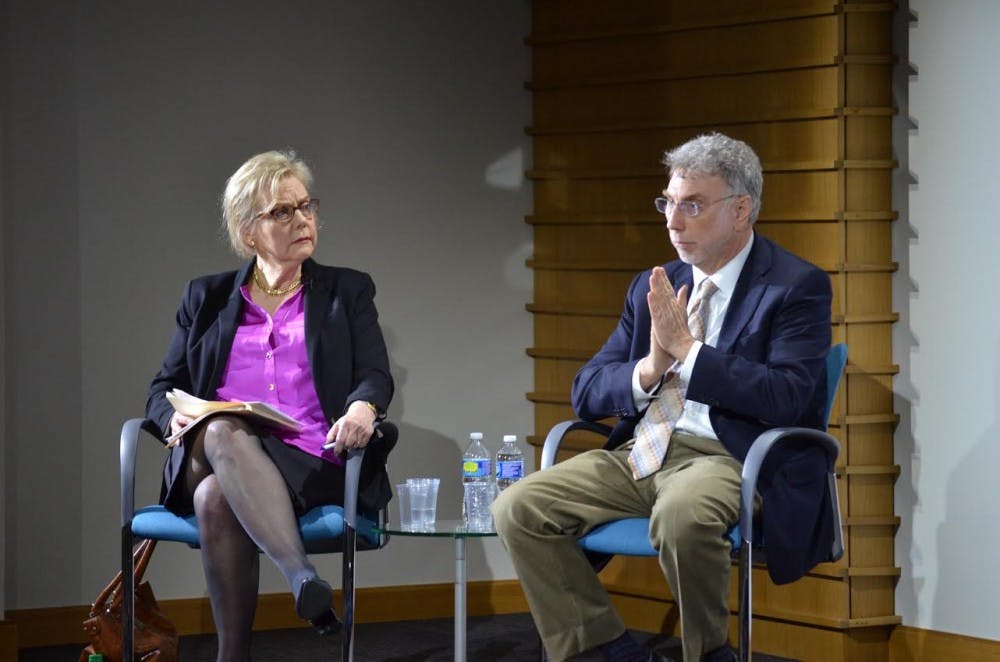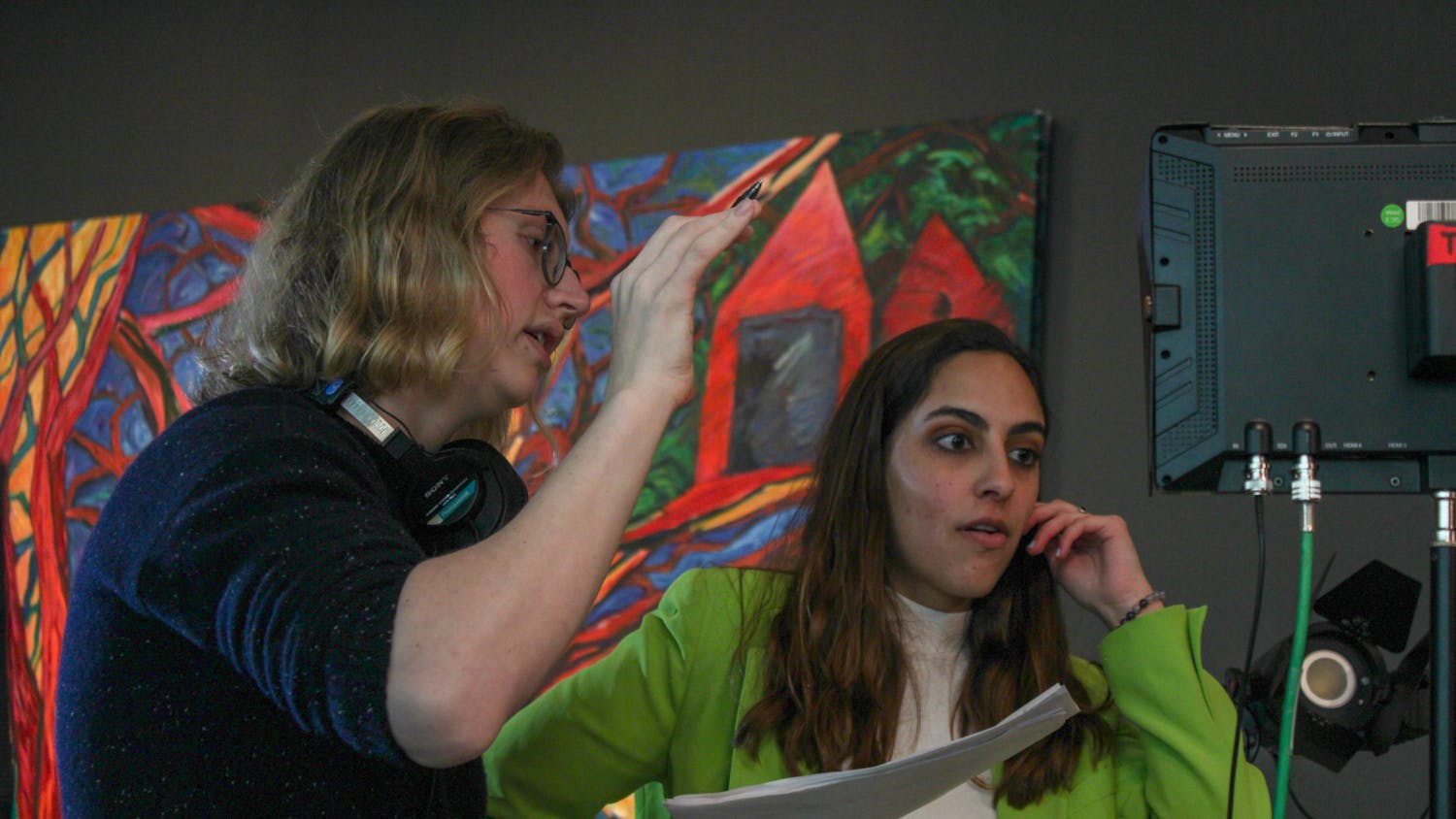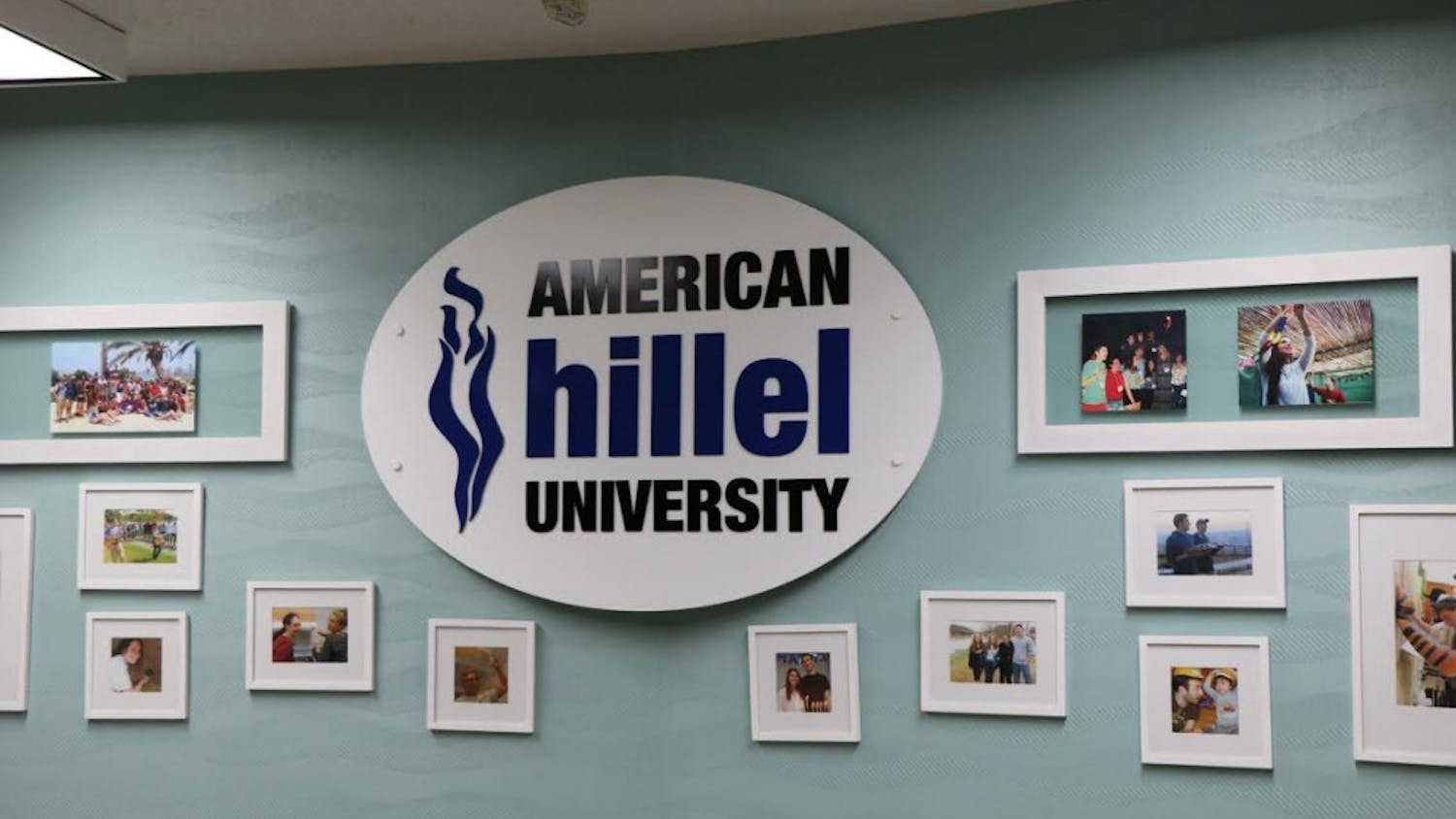Students, faculty and alumni poured into the McKinley Building’s Forman theater on Wednesday night to hear Marty Baron, the executive editor of the Washington Post, speak about the movie Spotlight, the importance of journalism and the future of investigative journalism.
Baron spoke as part of the AU “Movies that Matter” series, a program organized by the School of Communication to address social issues and promote dialogue, according to the University’s website. The School of Communication included this event as part of its annual “SOC Week,” which runs through Friday and includes other events such as alumni panels and open houses.
“Spotlight,” which has earned several Academy Award nominations, tells the story of the journalists who exposed the coverup of sexual abuse in the Catholic Church in Boston during Baron’s time as editor at the Boston Globe., Baron said he thinks the movie appealed to audiences because of its accurate representation of the “Spotlight” team.
“It’s certainly resonated with journalists, who feel that it’s an authentic portrayal of the work that they do and the work they perform,” Baron said.
AU journalism and media studies professor Jane Hall, who moderated the event, asked Baron about the future of investigative journalism and the financial concerns of media outlets today. Baron explained that the business model is not good for investigative journalism - a lot of resources are put into the story and there is not a profitable return.
However, Baron went on to explain that despite the fact investigative journalism projects lack a good business model, these projects are essential, because they are what reporting is all about.
“If you were to follow that logic and discontinue investigative reporting, 10 or 20 years hence you would regret that decision,” he said.
Baron stressed the importance of letting the readers know what journalists stand for and making it clear that journalists are working on the behalf of the readers. Investigative journalism, as a whole, he said, faces challenges, but increased awareness about the roles of reporters can help build a stronger relationship between readers and writers.
“Publishers need to understand: What is the essence of who we are? What do we stand for? What is it that binds us to our readers?” he said. “Our readers expect us to be independent. They expected us to hold powerful interests accountable.”
Baron was soft spoken yet candid in his responses to questions, and he emphasized how the movie portrayed the investigation with authenticity. He said the movie was definitely accurate in showing that the Spotlight phones were ringing off the hook shortly after the story was published.
“People got angry,” he said. “They weren’t angry at us. They were angry at the Church.”
A scene from the movie that was played during the event showed the difficult decision Baron and other Globe editors made to wait on publishing until after confirming they had the whole story right. Baron said that the situation probably would have played out differently in today’s world of social media.
“It would have been difficult to sit on this story for all that period of time,” he said. “Things are so competitive these days.”
Students then had the opportunity to ask Baron questions. When a student asked him what kind of legacy he hopes to leave behind, Baron chuckled.
“I just want people to think I did good work as a journalist.”
mholt@theeagleonline.com





